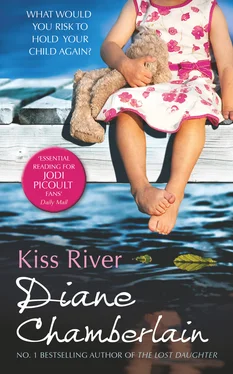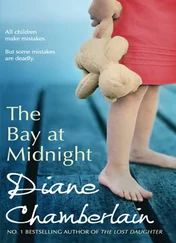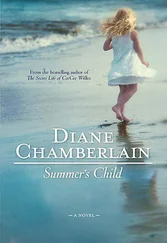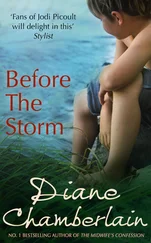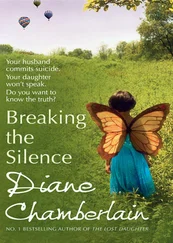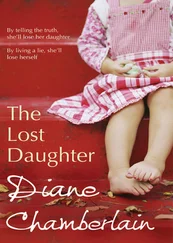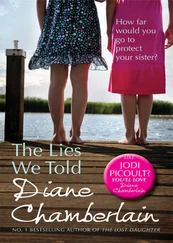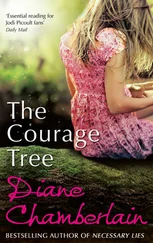Standing on the front porch, he rapped his knuckles against the frame of the flimsy screen door, leaning close to peer inside the small living room of the cottage. Henry quickly appeared in the living room, obviously champing at the bit to get out of there. Clay pulled the screen door open, and the dapper old man stood in front of him, dressed in his usual white shirt and dark tie. He had to be the only Outer Banks resident who wore a tie every single day, Clay thought. With the exception of Henry’s three-day hospital stay after having his appendix removed, Clay couldn’t remember ever seeing him without one. Or without his hat.
“Hey, Henry,” he said, resting his hand on the man’s shoulder. “How are you doing?”
“Got ants in my pants.” Henry placed his straw fedora on his head and stepped onto the porch. He flexed his knobby, arthritic hands. “Need a good game of chess at Shorty’s,” he said, and Clay knew he’d been waiting all day for this outing. He wished now that he’d stopped his work on the cistern to pick him up earlier.
“What happened to the railing there?” Clay pointed to the spot where the two-by-four was missing.
“Woke up one morning and it was gone.” Henry shrugged his shoulders. “’Twas the day after I caught twenty-two crabs, so I think their pals must’ve up and took it to get back at me.” He chuckled. Henry could crab without even leaving his house. All he needed to do was walk around the deck and scrape the crabs off the pilings with a net. Even at seventy-nine, Henry could make some of the best crab cakes Clay had ever tasted.
“You be careful there,” Clay said, pointing to the railing again. “I’ll come over soon to fix it.”
Henry liked to boast that he lived in a house as old as he was. In theory, he was right. The house had been built sometime in the twenties. But it had suffered a massive fire in the forties, and flooding off and on over the years, with a bit of the house being replaced here, another bit there, until very little of the original structure still stood.
The old man still had a bounce in his step, and he walked ahead of Clay toward the car. He was lively and sharp-witted—and he was now Clay’s responsibility entirely.
Henry Hazelwood was Terri’s grandfather, and she had taken on his care as he’d aged. Her father, Henry’s son, had died four years ago, and her mother lived in California, so she had been the only relative nearby. She’d adored Henry, though, and had never complained about that obligation falling on her shoulders. Clay liked Henry, too, but at the age of twenty-nine, he had expected to be creating a family of little rugrats, not caring for an old man. He was all Henry had, though, and letting him down was not part of his nature. Henry’s eyesight was going, and he’d been wise enough to give up driving a couple of years ago. That meant that Clay frequently had to take time off from work to drive him to doctor’s appointments, the grocery store, and most important to the old man, Shorty’s Grill, where he could play chess and visit with his old friends, Walter Liscott and Brian Cass.
The one thing about Henry that Clay simultaneously loved and hated was that he reminded him of Terri. Both Terri and her father had had a slant to their eyebrows above steel-gray eyes, and those features were mirrored in Henry’s face. Clay saw his wife there every time he looked at his grandfather-in-law.
“What did you do this morning?” Clay asked once they were in his car and crossing the island to the beach road.
“What do you think?” Henry asked him.
“Crabbed?”
“What else?” Henry chuckled again. “Snared my dinner. And how about you?”
“Oh.” Clay sighed. He was always caught off guard when Henry asked him about himself. “I worked on the cistern.”
“Sounds like a better use of time than catching crabs,” Henry said.
Clay smiled. “Can’t eat a cistern, though.”
Henry chuckled, and they both grew quiet. Henry was a man of few words. Any conversation between them was usually short and to the point, and that was fine. They had never, not once, talked about Terri. That was fine, too. Clay didn’t talk to anyone about Terri.
He had rejected his father’s suggestion that he see a therapist after Terri died. What could a therapist do? He—or she—couldn’t bring her back. Clay kept his dark thoughts and deepest feelings under wraps, throwing himself into his work, killing time more than filling it. The world thought he was doing fine. He stayed active and he made sure his spirits seemed up around his friends. Lacey was probably the only person who knew he wasn’t the jovial sport he pretended to be. He was around her too much to keep up the act, and he knew she was struggling to find a way to save him, the way she would save a stray kitten. Or a wandering lighthouse historian.
At breakfast that morning, he could see his sister looking from Gina to him and back again, hope in her conniving blue eyes that he would find the newcomer attractive. Well, he did find her attractive, but that only added to his problems, and he hoped Lacey wouldn’t try to push him too hard. He supposed she needed to focus on some new deficiency in him since she’d failed at getting him back into search and rescue work. He felt sick at the mention of those words: search and rescue . Literally sick. The other night, he’d had to turn off the television when a newscaster mentioned a search and rescue team involved in an earthquake in some other part of the world, the wave of nausea sending him to bed. Lacey had been in the room at the time, and she’d said nothing when he turned off the TV and went upstairs. A few months ago, she would have followed him up, trying to get him to talk. But she was learning. She no longer badgered him to open up about his feelings. One of these days, she would give up trying to save him. He was destined to be her one failure.
“Looky there!” Henry pointed in the direction of a new fish market on Croatan Highway. “We’ll have to try that one.”
“Looks like a good one,” Clay said.
Henry had lived on the Outer Banks forever, since being stationed there during the Second World War. He’d fallen in love with a Banks girl and married her, a union that produced one child, Terri’s father. The Outer Banks had grown up around him, but he never complained the way a lot of the old-timers did. He never talked about what things had been like in the old days, or grew crotchety over how crowded it was in the summer or griped about the tourists who acted as if they owned the place. He actually seemed to like the overgrowth of buildings and stores and restaurants that disturbed many of the natives. He’d spend hours in the supermarket, still amazed by all the choices, reading the labels on the frozen foods, which he loved. Clay had learned to bring a book with him when he took Henry shopping; otherwise, he would go out of his tree with boredom. Henry loved his TV dinners, but he had to have fresh seafood as well, so Clay took him to the fish market a couple of times a week. Now that Henry had spotted this new store, he knew it wouldn’t be long before he found himself leaning against the interior walls, reading his book, while Henry took his time sniffing the fish.
Clay had learned of Terri’s death on a Tuesday in late November, and his own shock and horror had been compounded by his need to tell Henry. Henry had already lost his wife and only son. To lose his beloved granddaughter as well seemed a cruel injustice. And Clay couldn’t tell him. It had been Lacey who went over to the rickety soundside cottage to give Henry the news. Clay never asked his sister how the old man took it; he didn’t want to know. All he knew was that, for the next few weeks, every time he picked up Henry to take him someplace, the elderly man’s eyes would be as red as Clay’s own.
Читать дальше
